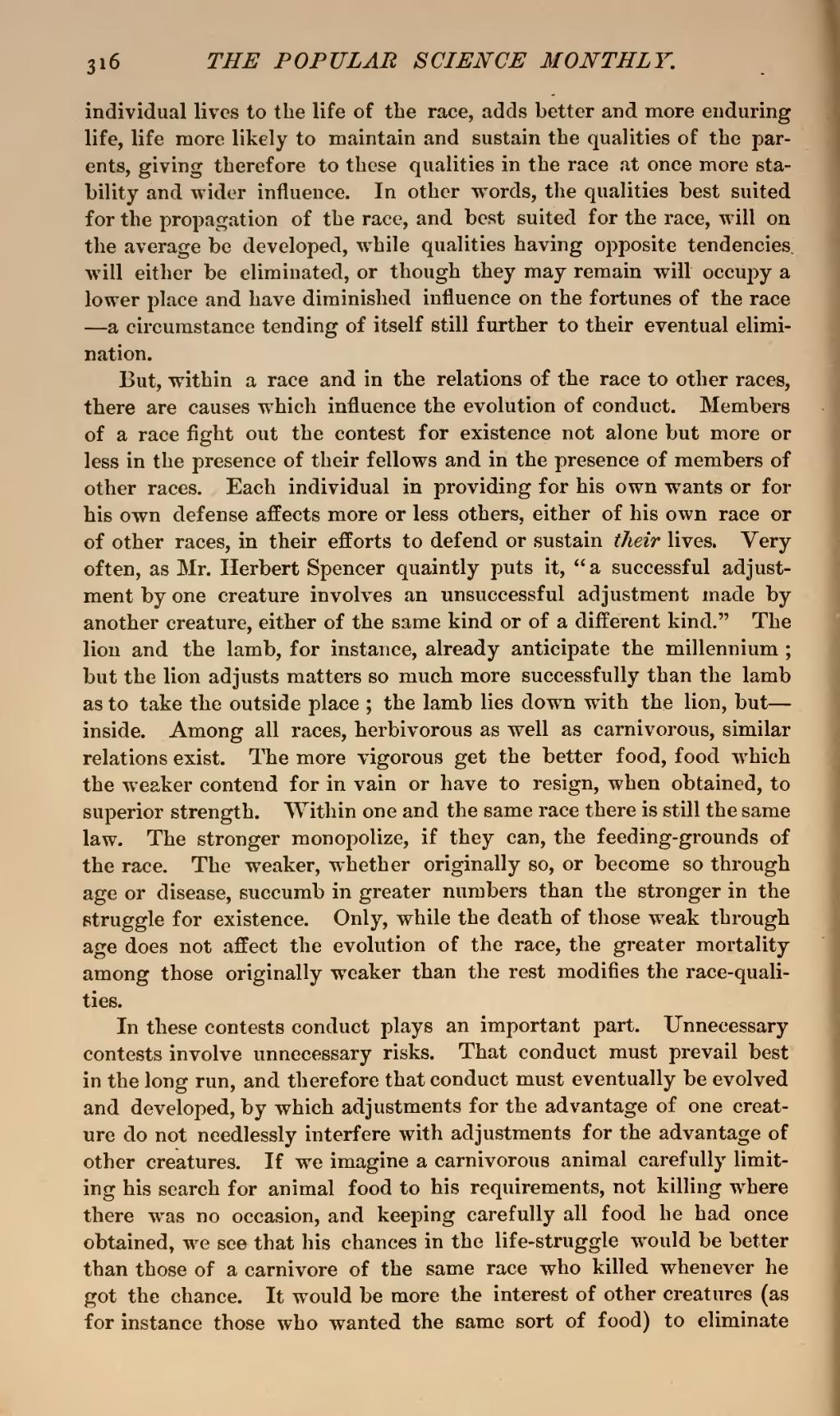individual lives to the life of the race, adds better and more enduring life, life more likely to maintain and sustain the qualities of the parents, giving therefore to these qualities in the race at once more stability and wider influence. In other words, the qualities best suited for the propagation of the race, and best suited for the race, will on the average be developed, while qualities having opposite tendencies will either be eliminated, or though they may remain will occupy a lower place and have diminished influence on the fortunes of the race—a circumstance tending of itself still further to their eventual elimination.
But, within a race and in the relations of the race to other races, there are causes which influence the evolution of conduct. Members of a race fight out the contest for existence not alone but more or less in the presence of their fellows and in the presence of members of other races. Each individual in providing for his own wants or for his own defense affects more or less others, either of his own race or of other races, in their efforts to defend or sustain their lives. Very often, as Mr. Herbert Spencer quaintly puts it, "a successful adjustment by one creature involves an unsuccessful adjustment made by another creature, either of the same kind or of a different kind." The lion and the lamb, for instance, already anticipate the millennium; but the lion adjusts matters so much more successfully than the lamb as to take the outside place; the lamb lies down with the lion, but—inside. Among all races, herbivorous as well as carnivorous, similar relations exist. The more vigorous get the better food, food which the weaker contend for in vain or have to resign, when obtained, to superior strength. Within one and the same race there is still the same law. The stronger monopolize, if they can, the feeding-grounds of the race. The weaker, whether originally so, or become so through age or disease, succumb in greater numbers than the stronger in the struggle for existence. Only, while the death of those weak through age does not affect the evolution of the race, the greater mortality among those originally weaker than the rest modifies the race-qualities.
In these contests conduct plays an important part. Unnecessary contests involve unnecessary risks. That conduct must prevail best in the long run, and therefore that conduct must eventually be evolved and developed, by which adjustments for the advantage of one creature do not needlessly interfere with adjustments for the advantage of other creatures. If we imagine a carnivorous animal carefully limiting his search for animal food to his requirements, not killing where there was no occasion, and keeping carefully all food he had once obtained, we see that his chances in the life-struggle would be better than those of a carnivore of the same race who killed whenever he got the chance. It would be more the interest of other creatures (as for instance those who wanted the same sort of food) to eliminate
